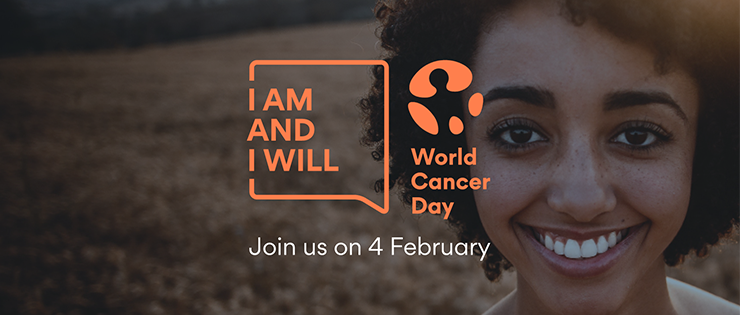
Today, February 4th is World Cancer Day. It’s a day when we raise awareness around the prevention, detection and treatment of cancer. As a doctor who is involved in the treatment of cancers, I understand how confusing and frightening a diagnosis of cancer can be. There is a lot of questions that people often have about cancer and for World Cancer Day, I’m going to give you some of the answers to the most common questions about cancer.
What is cancer?
Cancer is a disease when the body’s normal cells undergo a change. This change leads to those cells dividing rapidly and forming an abnormal growth. This growth is called a tumour. Without treatment, these tumours grow and can cause problems in the organ they have originated from, or they can spread to other parts of the body.
What’s the difference between benign and malignant?
A tumour can be called benign if it has a low potential to spread and looks very similar to normal healthy cells. They aren’t cancerous and while they don’t often cause death, they can cause problems as they continue to grow by pushing on tissues and organs around them, such as in the brain. A malignant tumour on the other hand, is cancerous, can grow and spread and which is a condition we call metastasis (pronounced meh-tah-sta-sis).
Are there different types of cancer?
Absolutely. Every cell in the body can undergo this transformation and give rise to cancerous cells. Cancer of the heart is quite uncommon because the cells of the heart do not divide very often at all meaning they are less prone to transform. We also know there are different types of cancers, depending on what sort of cells mutated in the first place. Some common types are sarcoma (from the cells of bones and muscle), carcinoma (from cells that line organs) and leukaemia (blood cells) and lymphoma (immune cells). The cancer is then named after the tissue it came from and the type of cancer it is. For example, lung adenocarcinoma is a lung cancer from the cells that make up glands within the lung. There are many, many different types of cancer.
What causes cancer?
There are some cancer causes that we can call preventable. That means if we reduce our exposure to them, we reduce our cancer risk. Cigarette smoke is a common one and has been implicated in dozens of cancers including bladder, throat and lung cancer. Alcohol, being overweight or obese, radiation exposure (including sunshine) and exercise are important factors. Some infections such as HPV, HIV or EBV are associated with other types of cancer. Then there are risk factors that we can’t really change such as our genetics, sex and age. Age is one of the most important risks; more cancers occur the older we get. Other cancers are more common in kids.
How is cancer treated?
Cancer treatment depends on the type of cancer, where it is an if it has spread. Surgery is an important treatment for a number of cancers and aims to cut out the tumour and sometimes any local bits of spread. Other common treatments include chemotherapy where drugs are given that target cells that divide quickly like cancer cells. They unfortunately can target other fast dividing cells in our body such as hair and gut cells which results in side effects like hair loss and nausea. Radiation therapy involves giving radiation beams directly the tumours to shrink them. More recently, newer treatments called immunotherapy which try to mobilise your body’s own immune system to attack the cancer. These treatments are showing tremendous potential.
I have cancer – how quickly can it spread?
This is the most common question I get asked after someone gets a cancer diagnosis. Some cancers are more likely to spread than others but regardless, there are literally dozens of things that need to happen in order for a cancer to spread. Either way, we like to get on and start cancer treatment promptly so as to minimize the risks of spread.
What things should I be looking out for?
For some cancers, we have good screening programs or tests. Make sure you are up to date with breast exams or mammograms and pap smears for women, prostate screening in men and skin checks for skin cancer or bowel cancer screening in both men and women. In addition, for some people who are high risk for certain types of cancer such as lung cancer, bowel cancer or anal cancer, you may need more frequent or specialized testing done.
For more information, see your GP or visit the Cancer Council website.